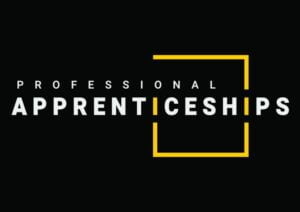Should I leave my apprenticeship?
Thinking of leaving your apprenticeship?
It’s a common question for apprentices – “I’m not enjoying my apprenticeship, should I stay or should I leave?”
There’s a lot to consider so let’s take a look at some of the main reasons behind this question, and how to balance the pros and cons and make a decision that’s right for you.
- “My wages are too low”
Keep in mind that you won’t be living on an apprentice wage forever; you chose this apprenticeship because of the long-term potential for both a good wage and a lasting career. Knowing there’s an end in sight can relieve stress, and it may be worth discussing your wage progression with your employer, so you know what to expect after you have completed your apprenticeship and EPA.
If you’ve seen another opportunity with higher pay, try not to focus too much on a short-term pay rise. Consider long-term benefits – if you will have a qualification, if there’s a career path, if you’ll develop transferable skills, and so on.
In the meantime, you may find this article useful: Living on an apprentice wage.
- “I want a change of career direction”
Is it the career you’re not happy with, the organisation you work for, or the sector you work in? For example, working in a large corporate organisation is very different to working for a small employer or for the public sector. The organisation’s culture and the clients/people it works with can make a huge difference to what your job looks like. Think about whether it’s the career you’re not happy with or the sector.
If a career change is what you want, consider whether your current apprenticeship has any skills that would transfer to your new career. For example, if you wanted to move from marketing to PR, a lot of marketing skills would be useful so it may be worthwhile completing your apprenticeship and then seeking opportunities in your preferred field.
- “My apprenticeship involves too much time studying”
You probably chose to do an apprenticeship because it’s a good balance of working and studying,
College and university both involve a lot of studying; a full-time job usually has no studying, but often comes with slower career progression. An apprenticeship gives the best of both worlds – there’s a lot of studying involved but the reward is that you learn while doing the job and can excel quickly.
There’s no getting around the fact that apprenticeships require a lot of work. If you find it particularly stressful, it may be worth speaking to your coach or line manager about how you can find a better balance, particularly when work has a busy period. It may also be useful to know that your ‘off the job training’ is an average – you’re allowed to do less some weeks, and more other weeks, to fit around work duties.
- “I don’t like my employer/the people I work with”
You might be experiencing conflict in the workplace, perhaps you’re not keen on your employer, or maybe you just don’t gel with the people you work with. This is extremely common and can affect your mental health.
It’s important to recognise that in any workplace there may be people you don’t get along with, and chasing the ‘perfect’ employer is not realistic. However, you should be content at work and able to be yourself without feeling uncomfortable, isolated, or involved in conflict.
It may be useful to learn how to deal with tough situations at work and browse our mental health and wellbeing resources. If you’re still not comfortable, changing employer may be the best action for you.
Remember, if you’re experiencing bullying, harassment or discrimination at work, this isn’t acceptable – our Helplines may be useful, or you can speak to your training provider’s safeguarding officer. Their job is to protect your wellbeing.
- “I’ve already got a qualification, why should I stay to complete my apprenticeship and EPA?”
Many apprenticeships involve gaining a qualification while on-programme. Future employers look favourably on an apprenticeship, and your personal ability to see through your commitment until completion will reflect well on you. Future employers will see a person who is dedicated and willing to work hard to achieve a goal.
- “I’m too stressed at work”
Every job will have ups and downs, busy periods and quiet periods. Often the key to lasting happiness is in the way we handle stress. Try to recognise what causes you stress and what helps you relax. Identify if there’s anything you can do to lessen the stressful periods, such as asking a colleague for support. Look after your wellbeing too and make time to do something you enjoy every day.
You may find this article useful: Stand up to stress: Building emotional resilience.
- “I’m having issues with my training provider/skills coach”
Your training provider is a company with many people, your skills coach is human, and mistakes can happen. Hopefully these will usually be minor and won’t affect you too much.
Sometimes issues are caused by things out of your provider’s control, and it’s how they handle problems that shows their quality. Every training provider and coach exists to support apprentices complete their apprenticeship, so give them opportunity to resolve any issues.
If you have continuing or serious issues, these need to be addressed. You have a few options here. You can speak to your coach directly. If you don’t feel this is best, you could talk things through with your line manager (or Apprenticeships Lead if your company has one) and they may be able to resolve the problem with the provider on your behalf. If you still feel the issue hasn’t been resolved, escalate it using the provider’s complaints process – every training provider should have a written policy, and this is usually on their website, portal or info pack.
If you wish to take your complaint further, you can raise it with the ESFA – details can be found here.
- “I don’t want to complete functional skills”
You probably hear education being talked about as an investment – in this case, it’s especially true. Having the relevant level of maths or English qualification will see you go far in your career. It will teach you skills that will be useful throughout your personal life as well as at work. This is one time where ‘sticking at it’ really will pay off.
- “I’ll be 2 years older by the time I finish my apprenticeship”
In 2 years’ time, you’ll be 2 years older. Would you rather have an apprenticeship under your belt or not? Time will pass by either way – do your future self a favour and give them an apprenticeship qualification.
- “I struggle doing my role with a mental or physical condition”
Reasonable adjustments exist to support those with a mental or physical health condition to complete their apprenticeship and EPA without any disadvantage. For more details, see this article.
Training providers and EPAOs have their own Reasonable Adjustments policy – you can see 1st for EPA’s here.
- “My job doesn’t suit my carer responsibilities/lifestyle”
Apprenticeships can be completed part time. Try asking your employer if this could be an option.
Factors to consider
Balancing the positives and negatives is a good way to weigh up the arguments and make your decision on whether to stay or leave your apprenticeship. Many apprentices choose to write a list. Here are some questions to ask yourself.
Can you stick it out? Is this a short-term problem or a long-term one? Is it bearable in return for the achievement at the end?
Can you resolve the issue by speaking to others? This might be resolving conflict with colleagues, discussing progression with your employer, or addressing any concerns with your apprenticeship coach. You might also want to speak to someone in your support network to discuss your decision and the best course of action.
Make your intentions clear to those who matter. If you need a pay rise once you complete your apprenticeship in order to stay with the company, make your manager aware of this. It doesn’t have to be a confrontation; think of it as an opportunity for both sides to share expectations. Here’s some guidance on how to approach conversations like this.
Make an action plan. Add timescales and any actions you need to take to get from your current situation to where you see yourself – qualified, content, in a job you enjoy.
Try not to make snap decisions. Important decisions take time, and it’s best to spend time thinking it over now rather than regret it later.
What are your other options? Would you seek another apprenticeship or apply for another job? Would you wait for the right job/apprenticeship or feel pushed to go for the first one you’re offered? What could be the long-term effect of this?
Would leaving your apprenticeship affect other areas of your life? Think about family, friends, your mental health and wellbeing, your long-term job prospects and your personal life goals.
Could your issues be resolved, for example by asking for a pay rise, requesting a reasonable adjustment, flexible working, even moving to a different department?
Before making any decisions, reach out to your support network. Your training provider or employer may be able to help resolve issues – they may know of solutions you’re not aware of, such as having a break from your apprenticeship (known as a break in learning). Friends and family can offer insights and help you come to a decision.
If you decide to leave your apprenticeship
- Give yourself options before leaving your apprenticeship. Explore job opportunities, look at other apprenticeships, and consider whether you want a career change or simply a different employer.
- Find a new employer and ask if they will support you to complete your apprenticeship. It may be possible to transfer to a new employer and keep your current training provider and skills coach.
- Look for jobs on the Find an Apprenticeship You may find an apprenticeship in your current field; in which case you can be sure the employer would support you to complete your apprenticeship.
- Ask your coach if they know of employers who would take you on and support you to complete.
- Think about your next interview. How will you convey your reasons for leaving and reassure the next employer you will be committed to your role? It may be useful to think about the transferable knowledge, skills and behaviours you have gained.
It’s common to go through difficult times during your apprenticeship, and thinking about whether to leave your employer or apprenticeship is normal. Remember there isn’t one correct answer – you need to decide what is right for you. Hopefully this article has helped give you some guidance in making your decision.







































